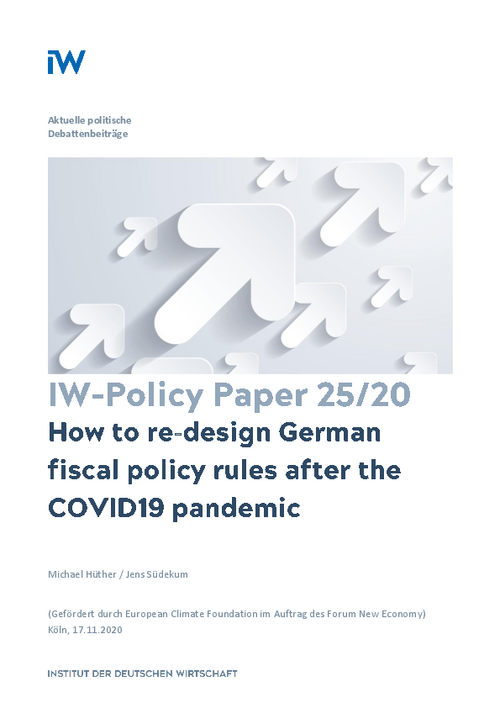The study will first outline the way in which Germany’s fiscal policy was driven for several decades by a paradigm that centered on deficit control and reduced state involvement in the economy.

How to Re‐Design German Fiscal Policy Rules After the COVID19 Pandemic
IW Policy Paper

The study will first outline the way in which Germany’s fiscal policy was driven for several decades by a paradigm that centered on deficit control and reduced state involvement in the economy.
It will assess the damage wrought by this strategy – for example, underinvestment in infrastructure and the worsening of the financial situation in many local municipalities. Afterwards, we sketch out a new framework for fiscal policy that might take the evaluation of public needs and the need for more public investment as starting points. The study will also address the response to the Corona pandemic and in what sense it reinforces the need for a new fiscal paradigm. What are the implications of such a shock for fiscal policy rules? And how should Germany and the European Union handle the enormous public debt incurred during this crisis?

Michael Hüther / Jens Südekum: How to re‐design German fiscal policy rules after the COVID19 pandemic
IW Policy Paper

More on the topic

Compendium 5.5: CO2 Regulation of Road Transport in Europe
With the Compendium CO2 Regulation in Europe, the IW has been providing the interested public with a comprehensive collection of data on the development of CO2 emissions from passenger car traffic in the European Union, as well as on the applicable regulatory ...
IW
The Transformation of the Automotive Industry: An International Comparison of Germany's Innovation Performance
The automotive industry is undergoing a comprehensive technological transformation that is challenging established value chains. Making sure that domestic research helps to shape this ongoing transformation is therefore an important task for countries with a ...
IW